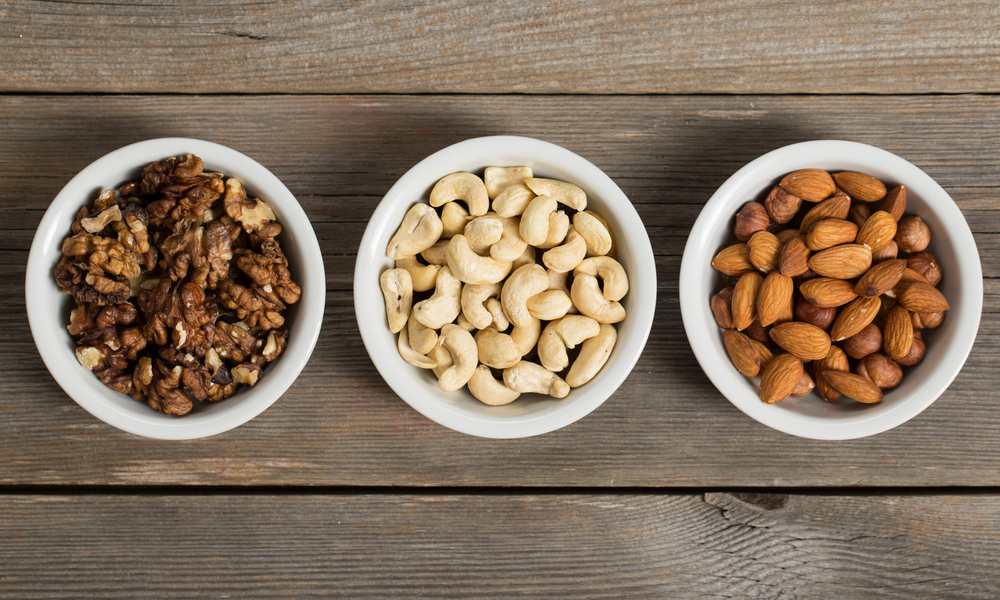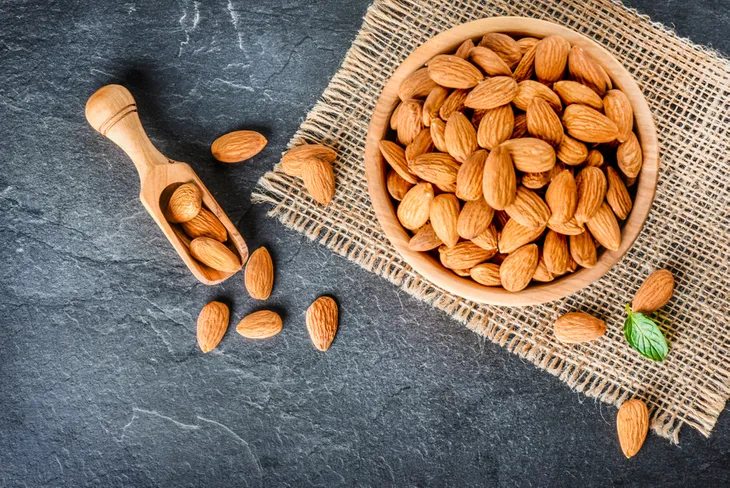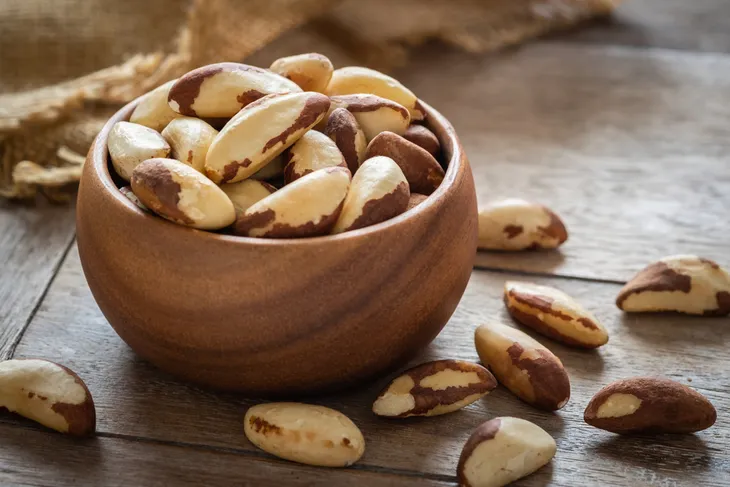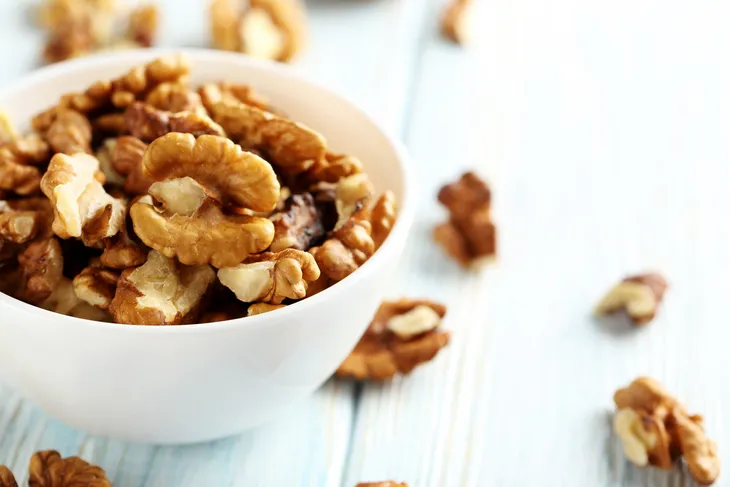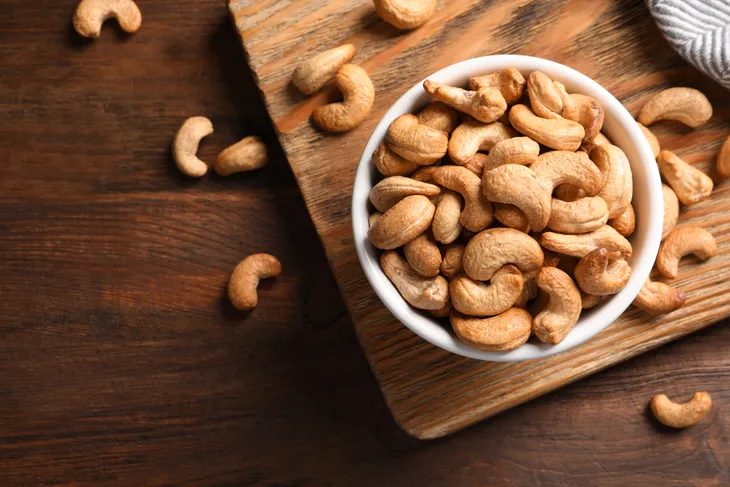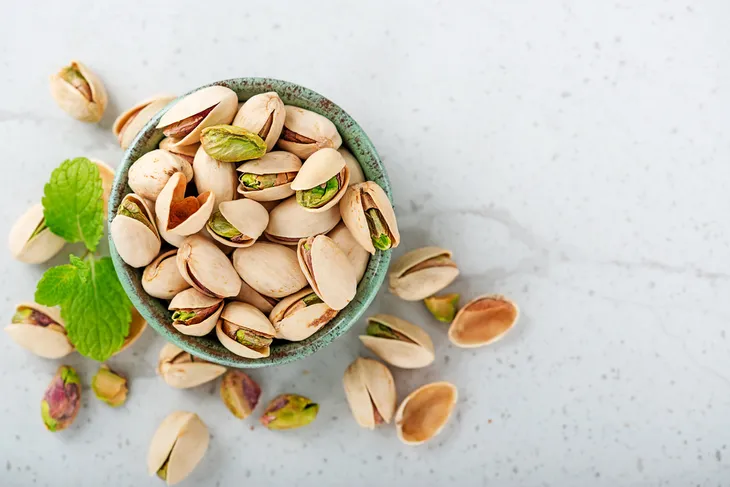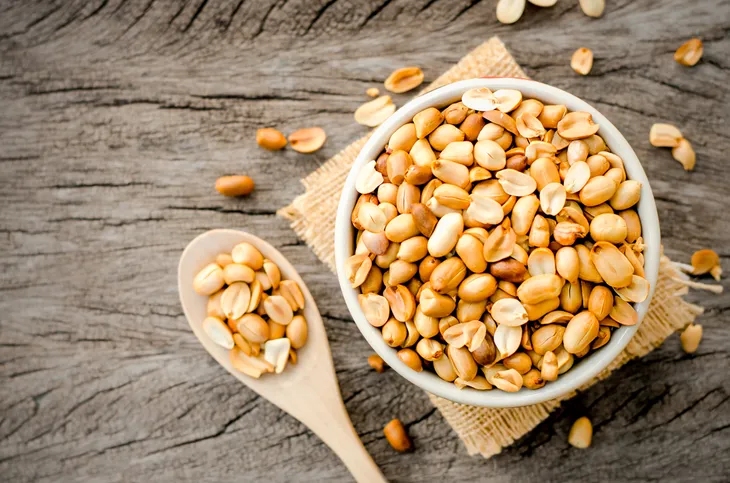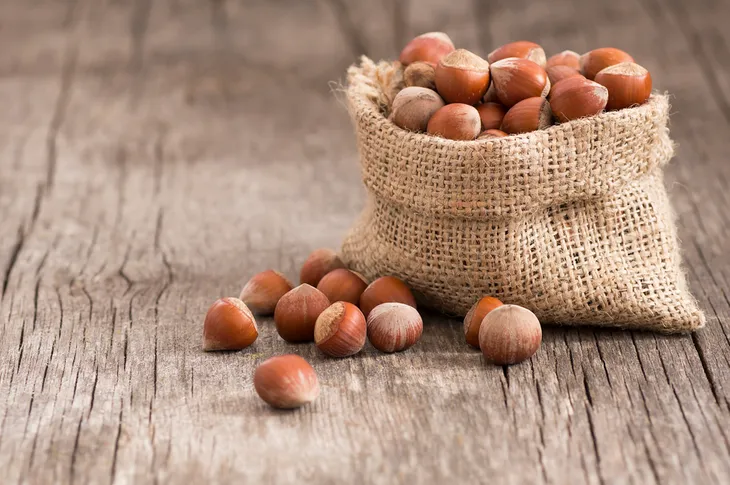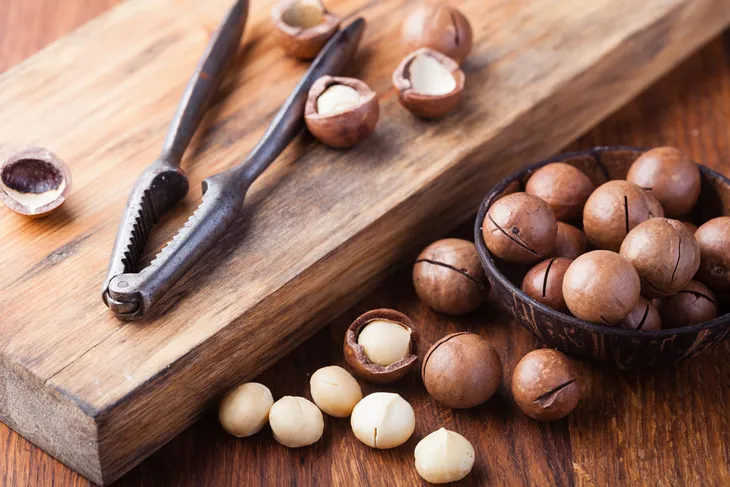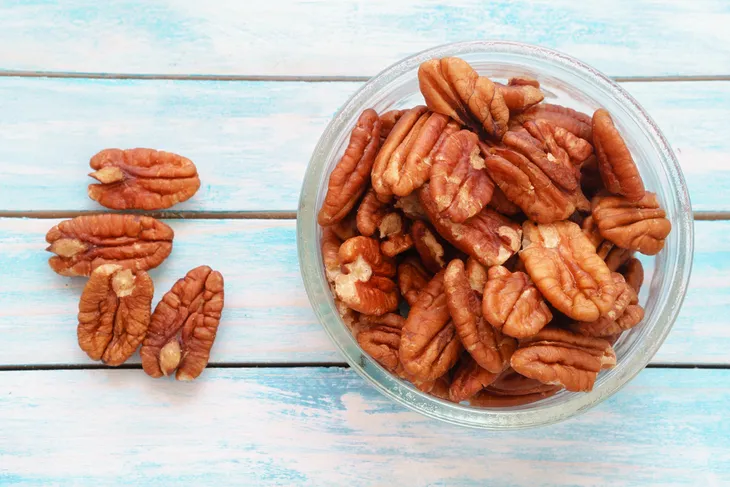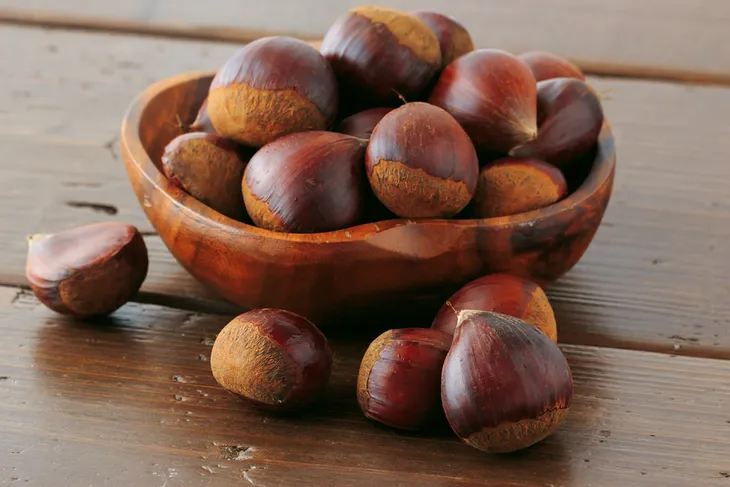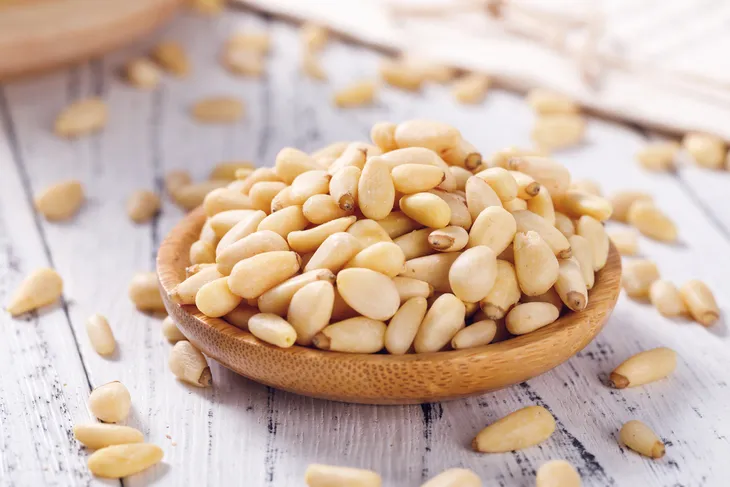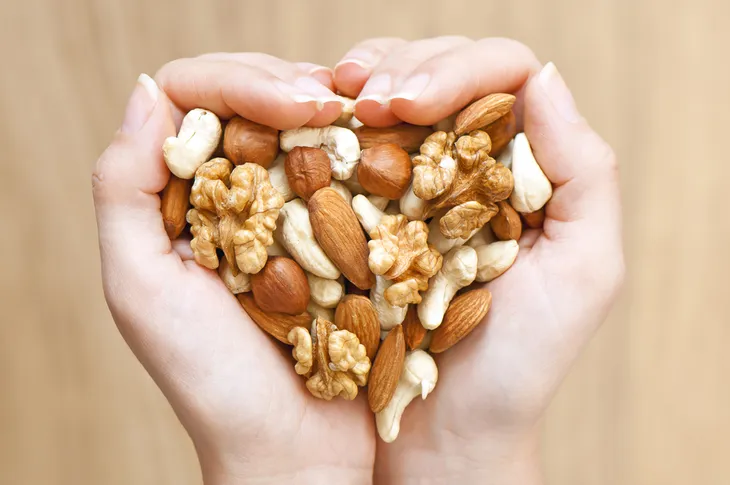- Regularly eating nuts can help with anti-aging efforts that range from preventing wrinkles to supporting heart health.
- But not all nuts are created equal. Depending on your anti-aging goals, some nuts may be especially good additions to your diet.
Nuts are a food staple worth always having on hand. Not only are they tasty, crunchy, and convenient, but they’re also packed with nutrients. For instance, nuts can be a good source of plant-based protein, healthy fats, and essential vitamins for healthy aging. While almonds and walnuts rightfully get a lot of praise for their health benefits, they aren’t the only nuts that can make a nutritional addition to your diet.
Almonds
Since almonds are loaded with nutrients, they can help with anti-aging in several ways. For one thing, they’re high in vitamin E. In fact, Health.com says 1-ounce of almonds (about 23 nuts) has “half of the daily target for vitamin E.”
According to the Cleveland Clinic, vitamin E may help reduce sun damage and keep moisture in your skin. Additionally, almonds are a good source of protein, fiber, and magnesium. So, Health.com says they can help boost immunity and reduce inflammation.
Brazil Nuts
Want to keep your skin smooth and healthy? Then you might want to try eating brazil nuts. Eat This, Not That! says brazil nuts are loaded with selenium, omega-3 fatty acids, and glutathione. Those nutrients can improve elasticity and help prevent wrinkles, according to the source.
Selenium can also help promote healthy hair, so those with thinning hair may benefit from brazil nuts. And get this: it only takes one brazil nut to meet your recommended daily intake (RDI) of selenium, according to Healthline.
Walnuts
Walnuts are rich in omega-3 fatty acids, polyphenols, and vitamin E. So, almonds can help “reduce inflammation in the face, strengthen skin membrane, and provide a glow to your skin,” according to Eat This, Not That!
Beyond slowing physical signs of aging, walnuts can also support cognitive health. Healthline says inflammation and oxidative stress play a significant role in Alzheimer’s disease. So, it’s notable that walnuts are a good source of anti-inflammatory and anti-oxidative polyphenols.
Cashews
Woman’s World says cashews have anti-aging benefits thanks to antioxidants like polyphenols and carotenoids. Both help protect our cells and fight damage. If you want to pack an even greater antioxidant punch, consider roasted cashews.
The source says research shows that roasting cashews can “rev up their antioxidant levels.” Plus, other studies found cashews can help manage glucose, cholesterol, and blood pressure levels, according to the source. So, cashews can help with blood sugar and heart health.
Pistachios
If you want to keep your eyes healthy, then pistachios may help. According to WebMD, pistachios have more lutein and zeaxanthin than other nuts. The source says both are antioxidants that can help protect eyes from blue light damage and age-related macular degeneration.
Besides better eye health, the source says the antioxidants in pistachios can help reduce the risk of cancer, diabetes, and heart disease. Plus, pistachios are a good source of protein. The source also says their calorie-to-protein ratio can help you feel full and manage weight.
Peanuts
While peanuts are technically legumes, not nuts, many people group them with nuts. Either way, peanuts can help anti-aging efforts. EatingWell says peanuts contain resveratrol, which “may slow cellular aging and promote heart health.”
While boiled peanuts have the highest levels of resveratrol, the source says “roasted peanuts also deliver a healthy dose.” And like tree nuts, peanuts contain healthy fats and fiber. So, the source says peanuts can be a filling snack.
Hazelnuts
Hazelnuts have many health benefits. For instance, they’re a good source of vitamin E, manganese, copper, folate, and magnesium, according to Healthline. Since menopause is often associated with inadequate magnesium levels, menopausal women may be especially interested in the benefits.
Healthline says magnesium can help support bone and heart health as well as reduce common side effects of menopause. For example, the source says magnesium may help improve sleep and reduce the risk of depression.
Macadamia Nuts
Macadamia nuts aren’t just for cookies. As a matter of fact, WebMD says they contain heart-healthy monounsaturated fat. As a result, the source says macadamia nuts can help support heart health. Research shows that a macadamia nut-rich diet can help lower “bad” cholesterol levels (LDL cholesterol).
The study followed subjects over two diet periods. During one period, subjects got their fat primarily from macadamia nuts. And during the other period, they got their fat from other sources. The results found that eating macadamia nuts reduced LDL cholesterol significantly.
Pecans
Besides being an integral ingredient in pecan pie, pecans don’t seem to get that much love. But they offer health benefits that make them worthwhile beyond the holiday season. For instance, Good Housekeeping calls pecans “nutrient-packed powerhouses” because they’re a good source of zinc, flavonoids, and vitamin E.
In fact, the USDA says pecans are one of the top 20 foods high in antioxidants. As Women’s Health puts it, antioxidants can help protect you from the “forces of aging and disease.” So, the antioxidants in pecans can help reduce the risk of health concerns like some cancers and dementia.
Chestnuts
Chestnuts are another nut closely associated with the holiday season. However, there’s good reason to keep them on your radar throughout the year. For example, chestnuts are rich in vitamin C, vitamin B6, gallic acid, and ellagic acid, according to Healthline.
Consumer Reports says a half-cup of chestnuts provides an adult woman with 25-percent of her RDI of vitamin C. “Research suggests that people who eat more vitamin C have fewer wrinkles,” according to WebMD. So, it’s notable that chestnuts are a good source of vitamin C, unlike many nuts.
Pine Nuts
Since they’re a good source of vitamin E, WebMD says pine nuts “may help keep your skin healthy and young in appearance.” The source says pine nuts are also a good source of zinc, magnesium, iron, omega-3 fatty acids, and protein.
So, pine nuts may help with diabetes management, heart health, and brain health because of those nutrients, according to the source. Given these points, pine nuts have a lot to offer beyond being a primary ingredient in pesto sauce.
Adding Nuts to Your Diet
Nuts can be a good source of protein, antioxidants, healthy fats, and other nutrients. As a result, they can have anti-aging benefits ranging from keeping skin smooth to supporting brain and heart health. But where should you sprinkle nuts into your diet?
While nuts make great standalone snacks, they can also help boost the nutritional value of meals. At breakfast, you could dig into a yogurt parfait with nuts and berries. Then you could sprinkle nuts onto a salad for lunch. And finally, a handful of nuts could make a tasty and nutritious side dish at dinner.
Generally, about one handful of nuts a day is all that is necessary depending on what other foods are consumed throughout the day. Nuts are high in calories and can cause unintentional weight gain if they are consumed in large amounts. Consult with a dietician to see how or what nuts work best for your diet.
